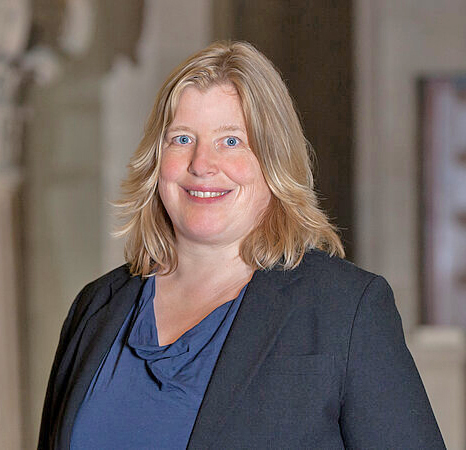 This lecture is a hybrid event. There is a sandwich lunch at 12.30 pm in the Old Library at the Centre. All lecture attendees welcome.
This lecture is a hybrid event. There is a sandwich lunch at 12.30 pm in the Old Library at the Centre. All lecture attendees welcome.
Register here if attending online
Lecture summary: From European colonialism to the ‘post’colonial constellation, modern international law has developed in parallel with the changing legal forms of industrialised countries’ access to the natural resources of the global South. Following this development, we can see how imperial environmentalism was translated to the transnational law of natural resources. The historic perspective also highlights that the specific ambivalence of colonial and postcolonial environmental protection (exploitation vs. protection) is an ambivalence built into international law itself. In accordance with its colonial origins, international law has institutionalised a specific path to economic growth and development that presupposes and stabilises a world order supported by the industrialised countries of the North. At the same time, with the principle of equal sovereignty and self-determination, it recognises difference from the dominant economic and industrial culture as a political principle.
Analysing international law’s approach to natural resources also directs our attention to changing ideas of nature and to the heart of international law's anthropocentrism, questioning its efficacy in tackling the ecological crisis. What we see here is an extractivist rationality that is intrinsically linked to the commodification of natural resources and green economy approaches in international environmental law. Last not least, a natural resource perspective highlights the fact that the legal concepts devised to determine how we share the world’s resources entail distributive processes among humans themselves.
Sigrid Boysen is Professor of International Law at Helmut Schmidt University in Hamburg and a Judge at the Hamburg State Constitutional Court. She serves as editor-in-chief of the international law review ‘Archiv des Völkerrechts’, has held positions as Visiting Research Fellow at Princeton University (2014), the Institute for Global Law & Policy at Harvard Law School (2021/22) and is currently Fernand Braudel Fellow at the Law Department of the European University Institute in Florence. Her research focuses on international law with a particular focus on the theory of international law, the law of natural resources, environmental justice, international environmental and economic law, and constitutional law. Recent publications include Die postkoloniale Konstellation. Natürliche Ressourcen und das Völkerrecht der Moderne, Mohr Siebeck 2021; ‘Postcolonial Global Constitutionalism’, in: Lang and Wiener (eds.), Handbook on Global Constitutionalism, 2nd ed. 2023, 166-184.
Chair: Dr Markus Gehring
The Friday Lunchtime Lecture series is kindly supported by Cambridge University Press & Assessment.


 Facebook
Facebook  X/Twitter
X/Twitter  Instagram
Instagram  YouTube
YouTube  Flickr
Flickr  LinkedIn
LinkedIn